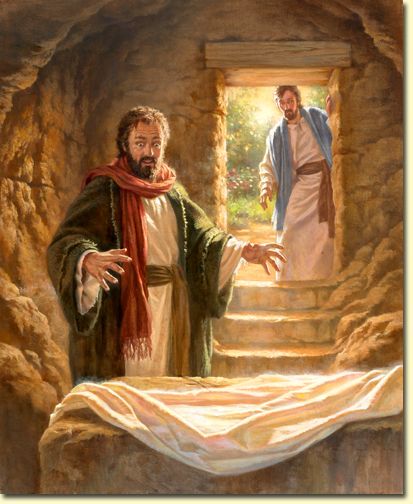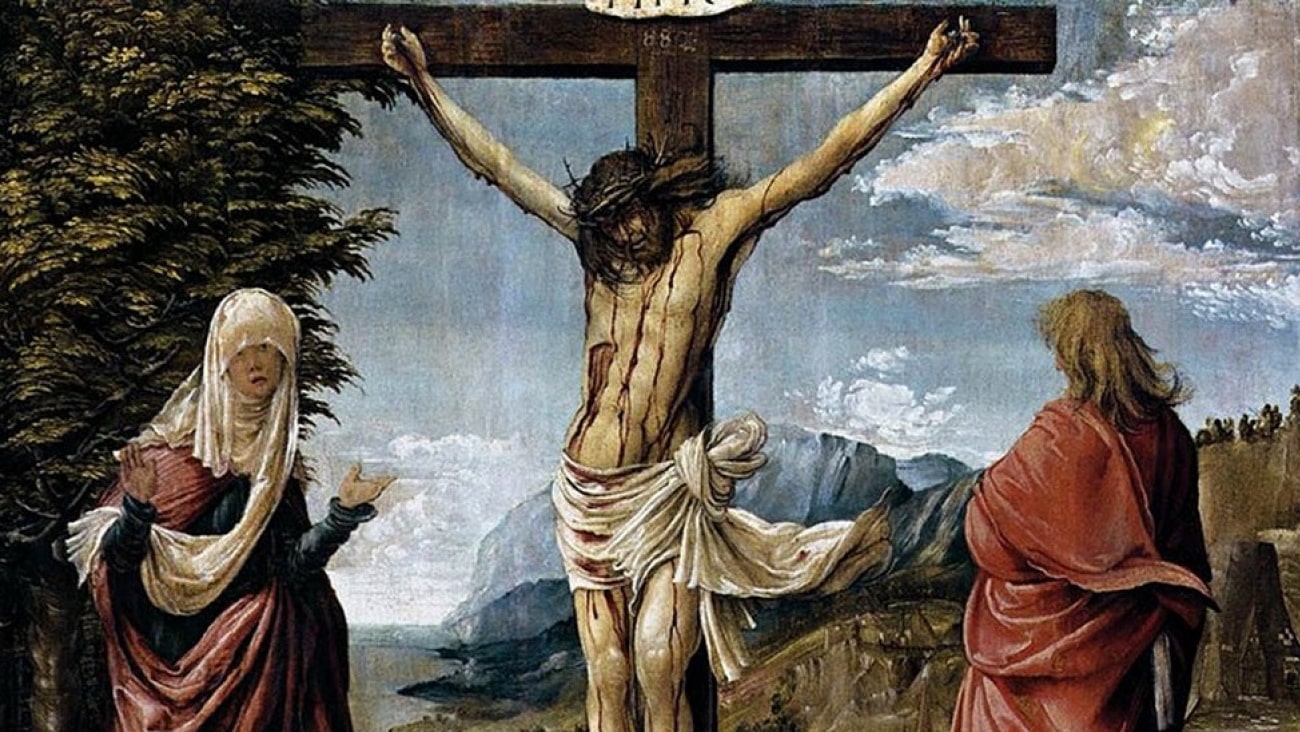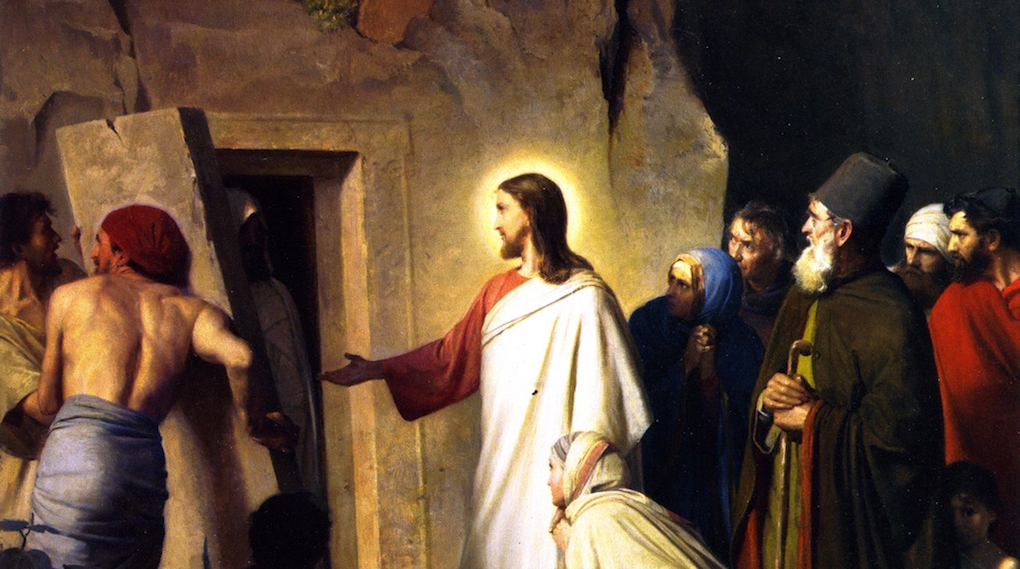
For a moment I would like you to imagine yourself at a party, maybe a party that you have been to, or one that you have given for friends and acquaintances. Let’s say it’s a costume party and people are there with altered ways of seeing each other. Everyone has a fresh start and a new beginning at being different persons. Past histories are forgotten. The guests present themselves, and are seen by others, as new persons.
Everyone at the party is having a wonderful time, chatting, laughing, enjoying each other, and sharing the happiness of a really good time. But then you notice someone over in the corner, all alone and sulking… miserable in his isolation and loneliness. You go over and try to talk with him but all you get for your trouble are a few grunts and a sour look. The more you try to break through his isolation the more you discover that he is disgusted with people who have a good time and resentful that you have even given a party. It’s almost as if everyone else doesn’t have a right to have a good time because he is miserable and he wants everyone else to be miserable also. No amount of coaxing moves him out of his protective and miserable shell. He absolutely refuses to receive the good time you wish to give him. There is nothing that you can do, nothing you can give him that will make him happy.
Let me now point out that God is throwing a party for us. He made the earth a garden of beauty. Even when in the Garden of Eden things didn’t turn out right God started over. And He did so again and again after that. Finally He sent his Son to throw us a party, a celebration in a new garden, the Garden of the Resurrection.
Listen again now to the prophet Isaiah (25:6-10): On this mountain the Lord of hosts will provide for all peoples a feast of rich food and choice wines, juicy, rich food and pure, choice wines. On this mountain he will destroy the veil that veils all peoples, the web that is woven over all nations; he will destroy death forever.
In St. Matthew’s Gospel (22:11-14) we hear: The servants went out into the byroads and rounded up everyone they met, the bad as well as the good. This filled the wedding hall with banqueters. When the king came in to meet the guests, however he caught sight of a man not properly dressed for a wedding feast.
The point of it all is that we come to God’s party, His banquet life, not because we have earned a right to be there, not because we can buy an invitation, not because our friends have good political influence with Him, but simply because He gives us entrance out of His free generosity. The enjoyment of life comes to us from God’s free choice and totally because of His sheer generosity.
There is a more subtle point. The bad as well as the good are at the party. All are predestined to attend. All are there with new faces, as new persons with new beginnings because the forgiveness of God has made them new again, new persons with new histories and new beginnings. All of our past mistakes and our sins are blotted out because we are wearing new visages, new costumes, because we are wearing His wedding garments, clothed with His gifts. God’s judgment is His mercy. Our predestination allows is to be made over again, the bad as well as the good, in the new creation that is given us by the Son of God, the Word made into one of us and then raised from the death of our sins and our history into a new life, in a new Garden of Eden, in the banquet thrown by God in the Resurrection of his Son.
Now the difficulty comes in our response to God’s invitation to His party. After all is said and done, God offers and we respond. He wants us to have a good time, a joyful time with Him in His world, in the life He has given us. The difficulty is found in those who sit off in the corner sulking, muttering to themselves, and hating all of those who are enjoying themselves in God’s party.
There are people who do not like to receive anything at all, even gifts. We all know of them. Perhaps we may even see them in ourselves. They are the ones who tell us: “I’ll pay for everything I get; I can earn my way and I don’t need anybody’s charity; I don’t need anybody or anything; I can take care of myself.”
That attitude is particularly noticeable when it comes to receiving forgiveness. Many people just cannot say that they are sorry, or confess their sins. They simply cannot receive the gratuity and the sheer gift of forgiveness. Why? Well for a lot of reasons I suppose, but I think a big reason is pride. It’s found in the fact that receiving forgiveness means an admission of need; the fear of being dependent upon another’s love; and so forth. Many reasons. But they all mean that such persons come to God’s party, God’s celebration of life, without a wedding garment, the garment that is being clothed with Christ. They cannot rid themselves of their past and be seen in a new light, as new persons. It means they can’t join the party and are bitterly resentful of those that do.
Receiving a sheer free gift is difficult. One immediately feels an obligation. One feels that one simply has to give in return; feels indebted; feels a sudden loss of independence and self-sufficiency. It happens at Christmas, birthdays. It happens in moments of crisis. It happens when one needs forgiveness. I know of several bad marriages when I could have helped the couples involved but was not able to because one or both of the parties would not come to me for help. They could not admit they needed help or admit that they could not take care of their problem all by themselves.
God has given us life and He wants us to enjoy ourselves in this life. By giving us life He is throwing a banquet for us, a feast of rich food in choice wines, juicy, rich and pure. He knows that we will make mistakes and so He is prepared to reconcile us in the death and resurrection of His only Son. Ultimately, when at the end of our lives we are judged by God, He will see our humanity in the humanity of his Son. He will judge us in that way. But that means that we have to come to God’s banquet table of life properly dressed, dressed that is in the wedding garment offered us by his Son. It means putting off our old clothes of self-sufficiency, privatism, independency, and grand isolation. It means putting on the wedding garment of acceptance, acceptance of ourselves in the limitations and imperfections we have, acceptance of our need for forgiveness, acceptance of the gift of His Son offered to us by God our Father. Our destiny is there. But the consequence of our life rests in our own decisions. What will be the sum total of our life’s decisions when we die? What grand decision will they all add up to? To know the answer to that question we have only to examine the pattern of our daily living and our willingness to receive the gifts of God, the gifts of life and the gifts of others that come to us in this life.
Truly in this instance it is more blessed to receive than to give. [28th Sunday in Ordinary Time- A]








